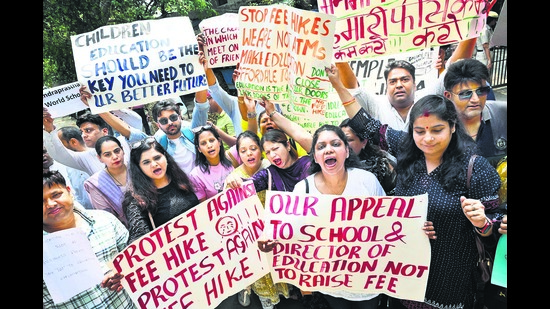Keeping private schools in check
Delhi's proposed fee regulation bill aims to curb profiteering in private schools, ensuring parental involvement and addressing arbitrary fee hikes.
The Delhi government’s proposed legislation on regulating fees in private schools comes against the backdrop of rising profiteering in school education. The draft cleared by the National Capital Territory cabinet on Tuesday follows the announcement of an audit of 1,600 private schools in the national Capital earlier this month.

Just weeks after the new government assumed office in Delhi, school fee hikes became a hot-button issue, with parents across schools claiming that the latter have been making arbitrary fee hikes. The Bill is a clear indication that the government agrees. Fee hikes of 15-18% in the case of some schools that charge a six-figure fee annually support the parents’ contention. Add the exorbitant rates charged for essential purchases such as uniforms and books, and it isn’t hard to understand why there is so much outrage over the cost of school education in the national Capital (though the problem isn’t limited to that geography).
Parents find themselves facing a difficult choice, given the alternative to expensive private schools is either government schools that fall short across parameters, or budget private schools that are often poor-quality teaching shops. This also explains why private schools, at the national level, have a larger share of new annual enrolments than government schools. Given that parents have little bargaining power against the schools — especially marquee private schools — approaching the courts is their only recourse.
The proposed law is also good for schools, which have thus far found headroom for even legitimate fee hikes limited.
It is in this context that the Delhi School Education (Transparency in Fixation and Regulation of Fees) Bill 2025, which ticks many boxes, offers relief to parents as well as schools. By providing for parental participation in fee decisions — at the school level; district and state level fee determination committees will handle appeals — as well as punitive provisions for violations, the law seeks to lessen the power imbalance between schools and parents. Similarly, laying down an explicit checklist against which the merit of a hike is to be adjudged can address the problem of “arbitrariness” of such decisions, allowing schools a chance to prove that their push for a hike is valid. That said, the Delhi government must avoid the pitfalls of over-regulation, subjective and arbitrary interventions by parents, remaining mindful of the gap private schools fill in the education market.
All Access.
One Subscription.
Get 360° coverage—from daily headlines
to 100 year archives.



HT App & Website







